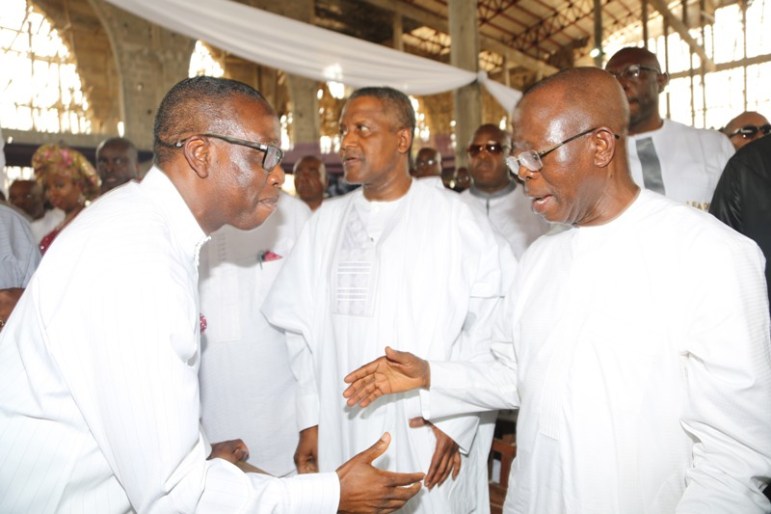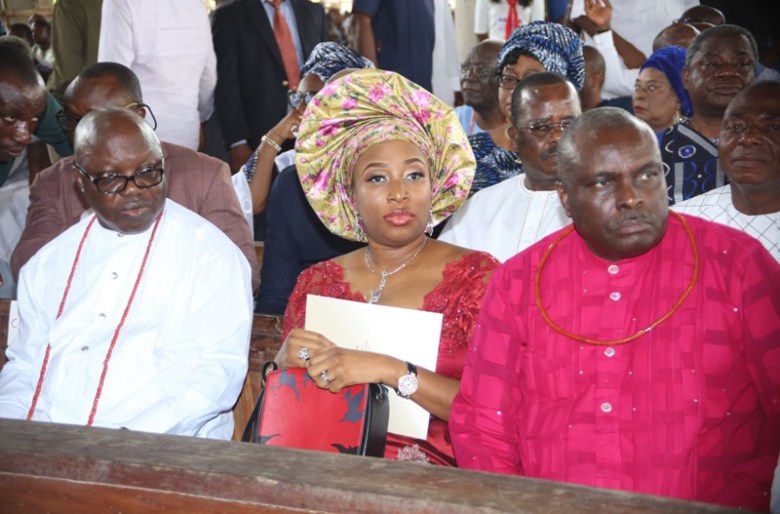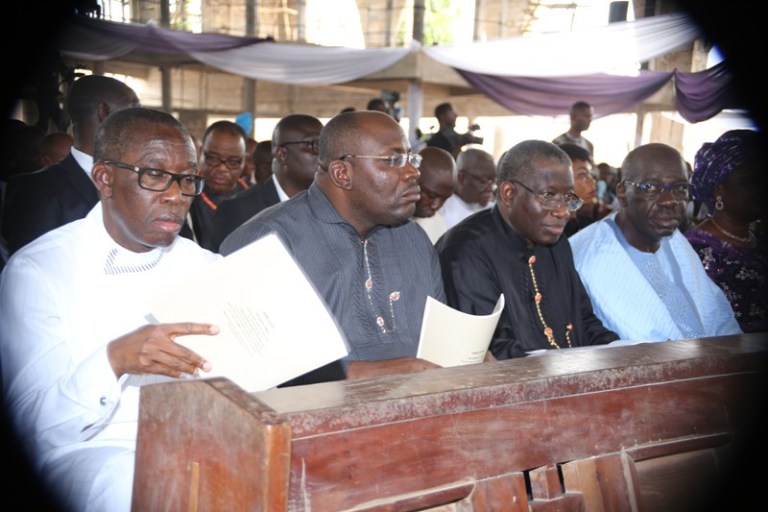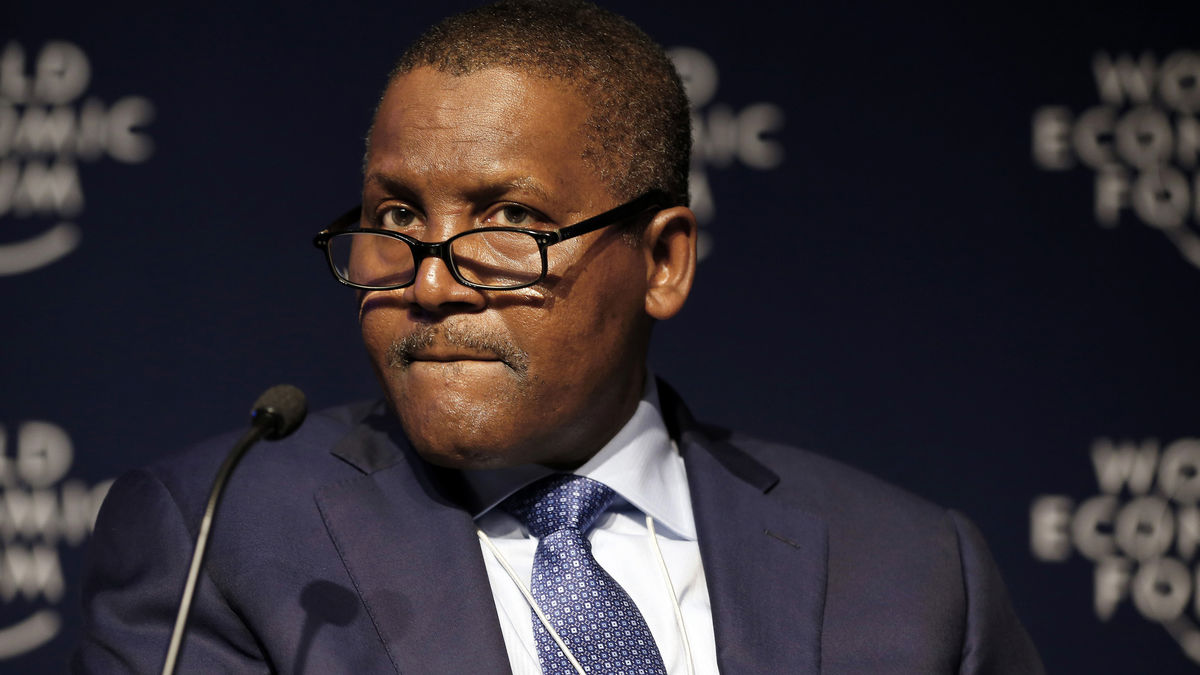Of the nearly 7.5 billion people on the planet, Forbes has identified the one person out of every 100 million whose actions mean the most.
Nigerian business mogul and Africa’s richest man, Alhaji Aliko Dangote, 61, was the only Nigerian to make the 75 Most Powerful People in 2018, according to a list released by Forbes. He’s pegged on 66th position coming a spot ahead of Vice President of the United States of America, Mike Pence who’s pegged on number 67 on the list.
Recall that the President of the Dangote Group of companies has often made such lists due to his business concerns and humanitarian efforts in Nigeria and other parts of the world.
Dangote, who made his fortune in the cement industry, is turning his attention to dairy and sugar farming; he’s earmarked $800 million to buy 50,000 cattle in the hope of producing 500 million liters of milk annually by 2019.
He’s also racing to finish a 650,000-barrel-a-day oil refinery near Lagos, set to be one of the world’s biggest, and says he intends to spend as much as $50 billion in the next decade on renewable energy and petrochemical refineries, including investments in the U.S. and Europe. Which is all fine, but not quite his grand ambition: buying Arsenal, his favorite soccer team.
Xi Jinping, General Secretary of the Communist Party of China, seizes the top spot on Forbes’ 2018 ranking of The World’s 75 Most Powerful People for the first time ever. China’s congress amended its constitution in March, broadening Xi’s influence and eliminating term limits. Russian President Vladimir Putin (No. 2) has been knocked out of the top spot, a title that he held for four consecutive years. A little over one year into his term, President Donald Trump falls to the No. 3 spot.
Newcomers to the list include Mohammad Bin Salman Al Saud, Crown Prince, Saudi Arabia (No. 8), who has risen to power and will be the fulcrum around which the region’s geopolitics move for the next generation; Jerome H. Powell, Chair, Federal Reserve (No. 11); Emmanuel Macron, President, France (No. 12), who is pivoting France toward the world’s capitalist stage; Jean-Claude Juncker, President, European Commission (No. 33); Michel Temer, President, Brazil (No. 50); Moon Jae-In, President, South Korea (No. 54); Hui Ka Yan, Chair, China Evergrande (No. 60); Lee Hsien Loong, Prime Minister, Singapore (No. 61); Ken Griffin, Founder, Citadel (No. 65); Qamar Javed Bajwa, Chief of Army Staff, Pakistan (No. 68); Reed Hastings, Cofounder, Netflix (No. 71); and Robert Mueller, Special Counsel, Justice Department (No. 72), who has already indicted several of President Trump’s associates and can make or break the Trump administration.
“This year’s ranking of The World’s Most Powerful People highlights the consolidation of power in the hands of an elite few,” said Forbes Contributing Editor David Ewalt. “China’s Xi Jinping ranks in first place for the first time, unseating Vladimir Putin, who held the top spot for four consecutive years. This also makes President Trump only No. 3 on the list, which is unprecedented only a year into his term.”
Angela Merkel, Chancellor, Germany (No. 4), remains the world’s most powerful woman. Mohammad Bin Salman Al Saud is now the youngest person on the list, a title formerly held by Facebook CEO Mark Zuckerberg (No. 13). Bernaud Arnault, Chairman, LVMH (No. 56) returns to the list thanks to swelling revenues at his fashion house Louis Vuitton.
Four factors were taken into account to select each of the World’s Most Powerful People: how many people over whom they have power; the financial resources they control; if they have influence in more than one sphere; and how actively they wield their power to change the world.
Forbes annual ranking of The World’s Most Powerful features 75 people — one for each 100 million people on Earth.
Out of the 75 members, 17 are newcomers. Among them there are presidents, billionaires, heads of organizations, CEOs, and one Special Counsel. One commonality: their words and actions impact large number of people, businesses– even entire economies.
From the new President of France to the army chief of Pakistan to the world’s most powerful person in sports, below are all new members of the ranks.
The only newcomer who’s ranked in the top 10 is Saudi Arabia’s Mohammed bin Salman Al Saud (#8). In November last year, the crown prince locked up a group of 200 people of the country’s richest and most powerful (including his billionaire cousin), forcing them to turn personal fortunes to the state as a part of an “anticorruption campaign.” After sequestering their assets, he went on an American tour to gladhand with Trump, Bezos, Gates and Oprah among others.
The ex-Carlyle Group partner Jerome Powell, became the world’s top central banker in February, after Trump didn’t extend Janet Yellen’s term. The Georgetown-educated lawyer will have big shoes to fill, as Yellen is widely considered to have done an outstanding job regarding the drop in unemployment and rise in the stock market.
In early 2017, after the strong favorite for new president Francois Fillon found himself entangled in corruption scandals, the relatively unknown Emmanuel Macron seized the chance. Uniting the center and the left, in May of last year, Macron obliterated the far right candidate Marine Le Pen, and at age 39 became France’s youngest leader since Napoleon. The ex-Rothschild banker has big plans about the traditionally obstinate country – in an interview with Forbes he vowed to eliminate the 30% exit tax for anyone who wants to take money out of France.
In August of last year, John Flannery took over as CEO of General Electric. One of America’s most iconic companies has certainly seen better days since Edison started it in 1890: share price is slashed in half over the last three years, mostly due to decades of bad acquisitions in the power business. The Wharton MBA and GE veteran will have the difficult task to persuade investors and clients that one of the corporation can bounce back up.
European Union’s top executive Jean-Claude Juncker makes his debut in a difficult year. Following Brexit, the anti-EU sentiment in many countries is stronger than it has ever been in the past. It is up to the ex-prime minister of Luxembourg to persuade government heads and local citizens that EU is still, 26 years after its creation, a good idea for them.
When Rex Tillerson left Exxon Mobil with a $180 million parachute for what turned out to be a short-lived stunt as a Secretary of State, the Board appointed Darren Woods as the company’s new CEO. The Kansas native has big plans for Exxon as it prepares for a low carbon future. “We understand the risk” (of carbon affecting global climate) he told FORBES earlier this year.
The only South American on the list is Brazil’s head of state, Michel Temer, who as Vice President inherited the most important position in the country after his predecessor Dilma Rousseff was impeached and removed from office. It’s been a difficult time to be a Brazil president: Rousseff’s predecessor Lula was recently sentenced to 10 years in prison, and Temer found himself entangled in corruption scandals.
One more president who took over after his predecessor was charged is South Korea’s Moon Jae-in. The ex-special forces sergeant was elected as leader of South Korea after Park Geun-Hye was found guilty of corruption and sentenced to 24 years in prison. In April he and the leader of North Korea made headlines, when Kim Jong-un crossed the southern border for the first time and the two vowed to work on improving the relations between the countries.
Another newcomer from the Far East is Chinese billionaire Hui Ka Yan. His real estate developer China Evergrande has had a fantastic year — share price is up nearly 230%.
Singapore’s Prime Minister Lee Hsien Loong joins the list two years into his latest mandate and fourteen years as Singapore’s head of government. The leader of the successful free-market promoting city-state said that he expects the economy to grow a 2.5 percent this year. He also chairs GIC Private Limited, one of the world’s largest sovereign wealth funds, with estimated assets under management of $359 billion.
One of Wall Street’s most powerful players, Ken Griffin earned an estimated $1.4 billion last year from net fees coming from his $28 billion Citadel hedge fund. Privately, he recently paid $60 million to buy the most expensive home in Chicago.
Though Pakistan’s top general Qamar Javed Bajwa has a boss on paper (the Prime Minister appoints him) in reality it is a different story. Late last year he refused Prime Minister Abbasi’s order to send troops to deal with Islamist protesters in Islamabad, and he brokered a peace with the angered crowd that resulted in the resignation of the Justice Minister. Bajwa, the most powerful person in the nuclear armed state, once served in Congo under the ex-chief of the Indian army who praised his professionalism.
Fidelity heiress Abigail Johnson debuts on the list the same year the investment firm’s assets under management reached $2.4 trillion. The Harvard MBA (whose grandfather started Fidelity in 1946) is one of the wealthiest women in the world with over $15 billion next to her name.
One of Hollywood’s two most powerful people doesn’t even live in Southern California. Reed Hastings, whose Netflix is headquartered closer to Apple and Google than it is to Disney and the Hollywood sign, saw his personal net worth more than double thanks to the rising popularity of Netflix. By the end of March, the streaming service boasted 125 million users globally.
The longest serving FBI director (2001-2013) since J. Edgar Hoover got assigned the case of his lifetime: determining if, and to what extent Trump’s campaign colluded with Russian officials. So far, Robert Mueller, a decorated Vietnam War hero, has indicted several of the President’s closest associates and reportedly provided the tip that to the raid on Trump’s personal lawyer.
Joko Widodo, the leader of the fourth-most populated country in the world and Southeast Asia’s larget economy, recently found himself a target of human rights groups, after his government reportedly sentenced an Indonesian teenager to 18 months in prison for insulting him on Facebook. Widodo, popularly called Jokowi, is still largely supported by the masses in the country that counts more than 260 million people.
The world’s most powerful person in sports, FIFA’s President Gianni Infantino was elected to the position after his predecessor Sepp Blatter resigned amid a series of corruption scandals. An important announcement is set to come from FIFA in June: which country will host the 2026 World Cup. The current competitors are Morocco and a joint bid by Canada, United States and Mexico.
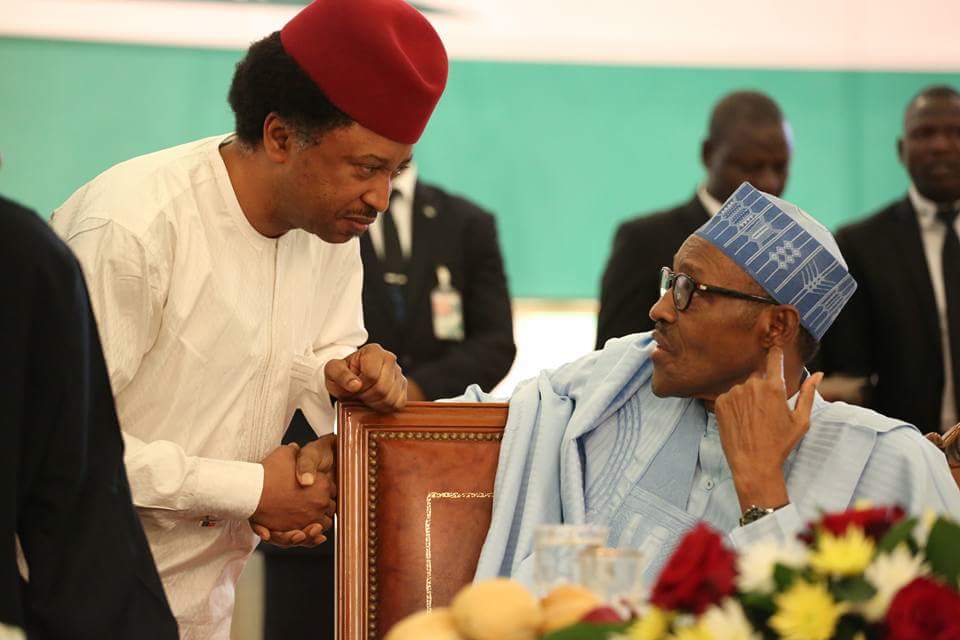
![[Photos] Jonathan, Oshiomhole, Dangote, Governors others attend Anenih’s funeral](https://thenewsguru.ng/wp-content/uploads/2018/12/Anenih-Burial.jpg)

